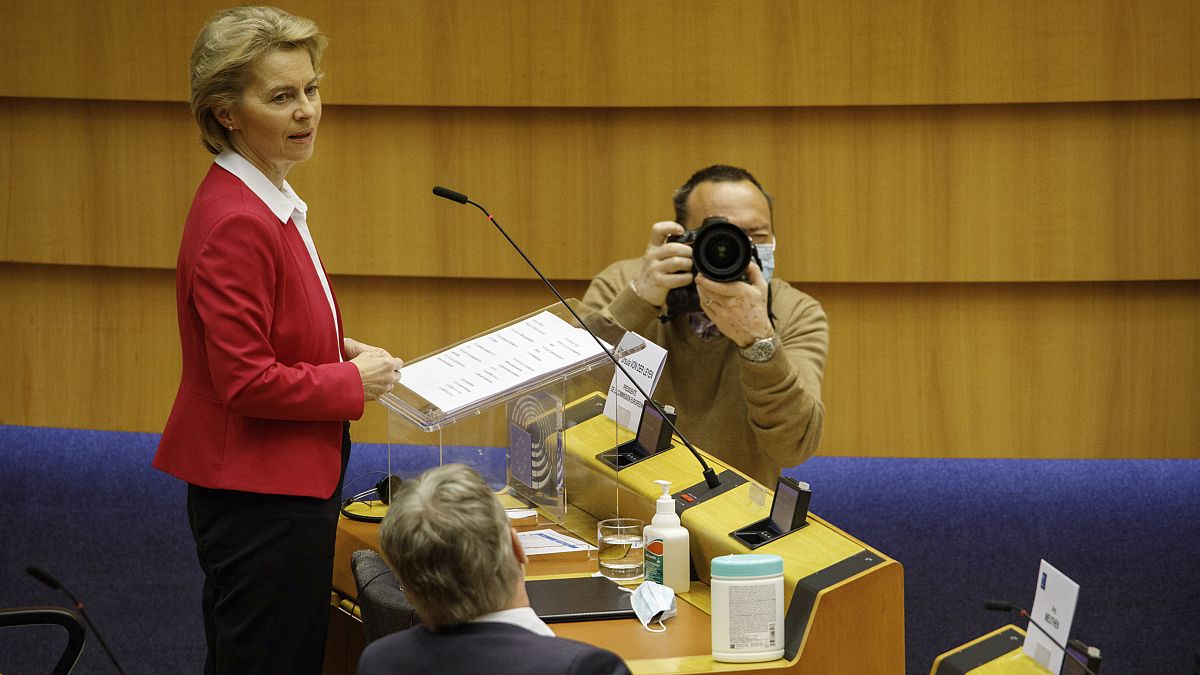Politicians and experts are now pouring over the details of the EU's trillion-euro recovery package. While it was welcomed by France, Germany, Spain and Italy, other countries in the north of Europe still need some convincing.
Brussels says the way through the economic crisis from the coronavirus pandemic is a 750 billion euro fund they're calling Next Generation EU.
They are pinning their plan on dividing it into 500 billion to be distributed in grants and 250 billion in loans.
It's a massive shift for the EU - the suggestion is the EU Commission will raise money on international markets with its triple A rating and give it out to member states hardest hit.
Countries in the bloc have never pooled their debt together in this way before.
The plans are now being trawled over by Europe's political factions. While MEPs largely welcomed the emphasis on grants that don't need to be paid back, some thought it lacked ambition.
"The overall volume might not prove sufficient in time but in any case, what we need to make sure is that we don't lessen the ambitions," said MEP Ska Keller (Greens, Germany).
The fund along with the budget it is proposing will total 1.85 trillion euros.
French President Macron and the Spanish, Greek and Italian prime ministers all took to Twitter to welcome the proposal.
'Frugal four'
Now the Commission and its supporters will enter into battle with the so called 'frugal four' countries - Austria, the Netherlands, Sweden and Denmark - who are staunchly opposed to shouldering debt with already heavily indebted southern neighbours.
A Dutch source has told Euronews its government’s position ‘remains unchanged.’
The Netherlands - one of ‘frugal four’ group of member states objecting to handing out grants to countries as part of the recovery fund says their ‘stance remains.’
Last weekend the group issued a counter proposal to the Franco-German deal suggesting struggling countries like Italy and Spain be given loans through the EU budget to help their economies resurge.
“Our position is clearly stated in the document circulated” last weekend, the source said.
“We will go into the negotiations on that basis - our position is clear”
‘We’re going through the lengthy proposal. ‘Our first reaction is still the same as of last weekend.’
‘We want a stronger EU, and a strong recovery for all.’
All EU member states are currently poring over the proposal.
‘Our first reaction is still the same as of last weekend.’
After we fully analyze proposals ‘we’ll start a lengthy discussion with the European Commission, the European Council, the member states and others.’
The source also pointed out that the Finnish and Czech governments also have ‘issues’ with Brussels’ announcement.
‘So it’s not just us frugal four.’
Solidarity
"It is not only a matter of solidarity, it is a matter of how we can survive and make sustainable the internal market and the very existence of the euro," argues MEP Iraxte Garcia Perez (Socialists, Spain).
Economists back this proposal to work if leaders can agree.
"It will do wonders," says Rebecca Christie - Economics Expert at Bruegel.
"It will allow businesses to keep people on their payrolls that they would otherwise have to lay off, it will allow municipal districts to go ahead with replacing bridges and digging holes for things even when their tax revenues are down. It'll keep Europe going.
However, Christie warns that if leaders are worried about how it looks to their electorates and what is being paid in an abstract way, the proposals will have a much harder ride.
Europe's businesses are reopening and the fund is being placed into the EU's seven-year budget.
The pressure is on for EU countries to work this out. A summit is set for mid-June where leaders expect to start negotiations will look set to be tough.
